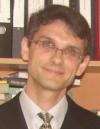Keywords:
human
education
history
tradition
culture
intentionality
communication. |
Abstract: the article is dedicated to the relationship between a human being, education, and tradition. Based on the ideas of H.-G. Gadamer, W. Dilthey, M. Scheler, M. Mamardashvili, M. Heidegger, K. Jaspers, the author considers education as a form of daily exposure to Tradition which is intended to bring person back to their memory and encourage conscience, honour, the pursuit of beauty, freedom, etc.) A human path is taken through what is accepted and deeply rooted in history. The purpose of education is to be on this path. And the unity of a protective function gives a common ground to education and philosophical hermeneutics. If school is focused only on the development of rational abilities of students, their knowledge and skills, it is not able to preserve the Tradition.
Co-existential nature of humanistically oriented education implies the establishment of relations with the events, including historical events. However, the author states that we should not be restricted to rational perception of the facts that occurred in the past. The education system is able to play a stabilizing role preserving ancestral heritage and communicating core values to the younger generation. The article emphasizes a multidimensional nature of the process of finding the past. In particular, it draws attention to the development of a personwhile being verbally exposed to Tradition, to aesthetic and the role of art. Possible self-preservation of education is supported by the core of Tradition, basic human values, and, in this regard, the formation of the ideal. In addition – by the reference to classical education with its philosophical and historical components aimed to develop Homo traditionale. Education aims to allow an individual to perceive slightly what lies at the heart of everything. Everything else can be learned without enlightenment and experiencing Tradition, can be found in documents, on the Internet, in any information medium.
|
1. Gadamer G.-G. Aktual'nost' prekrasnogo. - M.: Iskusstvo, 1991. - 367 p.
2. Gadamer H.-G. Istina i metod: Osnovy filosofskoj germenevtiki: Per. s nem./ Obshh. red. i vstup. st. B.N. Bessonova. - M.: Progress, 1988. - 704 p.
3. Gubin V.D. Ontologija. Problema bytija v sovremennoj evropejskoj filosofii. - M.: RGGU, 1998. - 191 p.
4. Ivashevskij S.L. Ideal obrazovannogo cheloveka: tradicii i sovremennost'. Avtoref. diss. na soisk. uch. st. k.f.n. - Nizhnij Novgorod: NGPU, 1999. - 26 p.
5. Mamardashvili M.K. Kak ja ponimaju filosofiju. - M.: Izd. gruppa "Progress", "Kul'tura", 1992. - 416 p.
6. Mamardashvili M.K. Neobhodimost' sebja/ Lekcii. Stat'i. Filosofskie zametki/ Pod obshh. Red. Ju.P. Senokosova. - M.: Izd-vo "Labirint", 1996. - 432 p.
7. Mamardashvili M.K. Psihologicheskaja topologija puti. M. Prust. "V poiskah utrachennogo vremeni."/ Pod red. Ju.P. Senokosova. - S.-Pb.: "Neva", RHGI, 1997. - 572 p.
8. Sokolov B.G. Germenevtika metafiziki. - S.-Pb.: S.-PbGU, 1998. - 224 p.
9. Herrmann Fr.-V. fon Fundamental'naja ontologija jazyka. – Mn.: EGU; ZAO "Propilei", 2001. – 168 p.
10. Jung K. Libido, ego metamorfozy i simvoly. - S.-Pb.: Vost.-Evr. inst. psihoanaliza, 1994. - 414 p.












